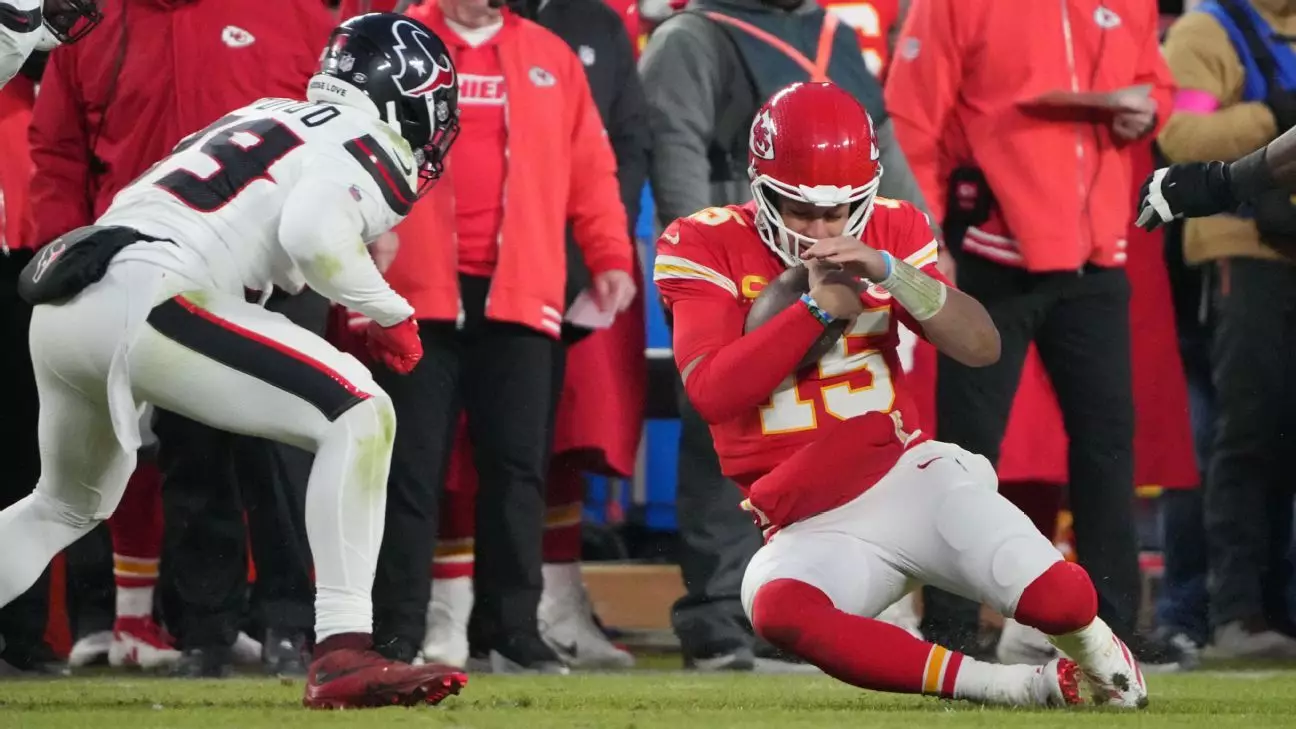The debate surrounding officiating in the NFL has taken a new dimension with Kansas City Chiefs quarterback Patrick Mahomes often at the center of discussions about fairness and favoritism. Critics argue that Mahomes garners excessive protection from referees, which might distort the competitive nature of the game. Yet, recent developments regarding the expansion of replay assistance indicate a potential shift toward greater objectivity in officiating, raising crucial questions about how these changes will impact gameplay.
Replay assistance was introduced in the NFL in 2021 to mitigate contentious calls during games and ensure that technological advancements in video replay are utilized to uphold fairness on the field. This system is particularly beneficial in scenarios where there is clear and indisputable evidence to rectify on-field decisions. Moving forward into the 2024 season, the NFL intends to broaden the scope of replay assistance to include matters that involve quarterback slides and abusive hits on players, especially those targeting quarterbacks.
In a league that thrives on fast-paced and high-stakes action, the need for precise officiating has never been more critical. As various incidents involving Mahomes suggest, allowing replay officials and on-field referees to review certain calls could lead to more accurate penalties and, ultimately, fairer outcomes. However, this also challenges the balance referees must strike in protecting quarterbacks while allowing defenses a fair opportunity to compete.
During the recent AFC divisional playoff game against the Houston Texans, Mahomes evoked strong opinions following a controversial call that led to a 15-yard penalty for unnecessary roughness. As he maneuvered out of the pocket and slid to avoid contact, many felt the ensuing penalty was unwarranted. Notably, ESPN analyst Troy Aikman openly criticized the officiating on-air, stating, “You can’t, as a quarterback, run around and play games with the defenders and then get called for a penalty.”
Such moments magnify the ongoing debate about how much protection quarterbacks should receive. Critics of the current system argue that allowing quarterbacks to exploit protective rulings could lead to an imbalance where defensive players become hesitant to engage, thus affecting the integrity of competition. The Chiefs quarterback himself has expressed that he does not perceive preferential treatment in officiating, emphasizing the bipartisan nature of the challenges faced by referees during games.
As the NFL’s Competition Committee gears up to deliberate potential rule changes, the proposed alterations to replay assistance set the stage for significant shifts in how teams approach both offensive and defensive strategies. If replay assistance encompasses decisions pertaining to quarterback slides, it could not only protect quarterbacks but fundamentally alter the nature of defensive plays. Teams may need to recalibrate their approaches, fostering a heightened respect for the rules surrounding quarterback safety while aiming to maintain a robust and competitive edge.
Moreover, while efforts to increase objectivity are commendable, they also invite skepticism about the reliability of video replay as an effective means of refereeing. The nuances of on-field situations cannot always be adequately captured through camera angles, which may result in further disputes about calls made under the revised system.
The NFL is in a pivotal phase regarding its officiating protocols, especially in light of player safety and competitive integrity. The expansion of replay assistance appears to be a proactive solution aimed at enhancing fairness in officiating, yet it carries its own set of controversies and challenges. As discussed among players, analysts, and officials, the conversation will evolve over the coming offseason, especially as discussions around the treatment of star players like Patrick Mahomes persist in the public sphere.
Ultimately, the focus should remain on creating a game that not only entertains but also upholds the values of fairness and competition. Balancing the protection of key players while maintaining a level playing field is a delicate yet vital endeavor for the NFL, and any changes that emerge must thoughtfully navigate these complexities. As the landscape of football continues to evolve, the league’s responses to such pressing issues will undoubtedly shape the future of the sport in ways yet unseen.


Leave a Reply